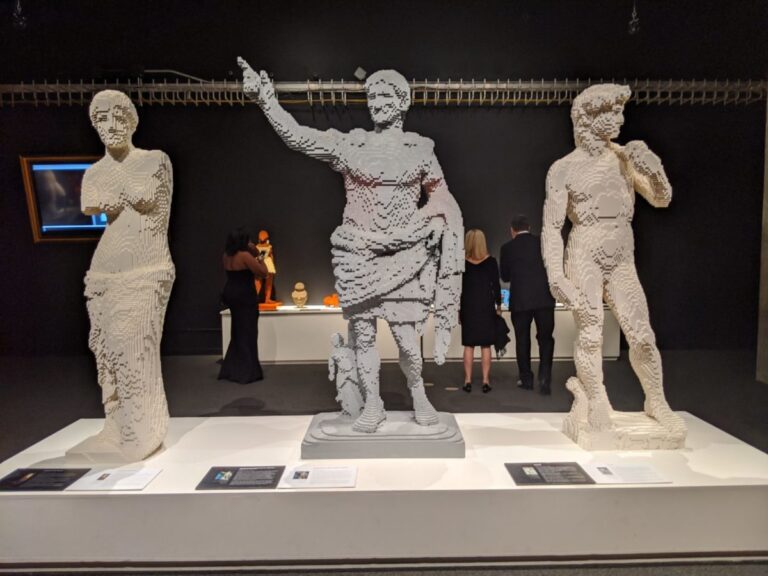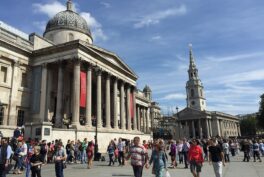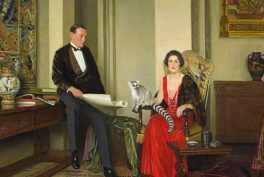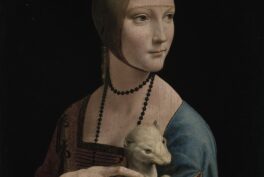The Art of the Brick is the first major museum exhibition in the world to exclusively use LEGO® blocks as a medium. It is on display at the California Science Center in Los Angeles through September 07, 2020. Is it possible to build LEGO masterpieces?
Due to the COVID-19 pandemic, the California Science Center is closed until further notice. Please check the website for updates. In the meantime, you can enjoy some of the many incredible artworks from the Art of the Brick exhibit below!
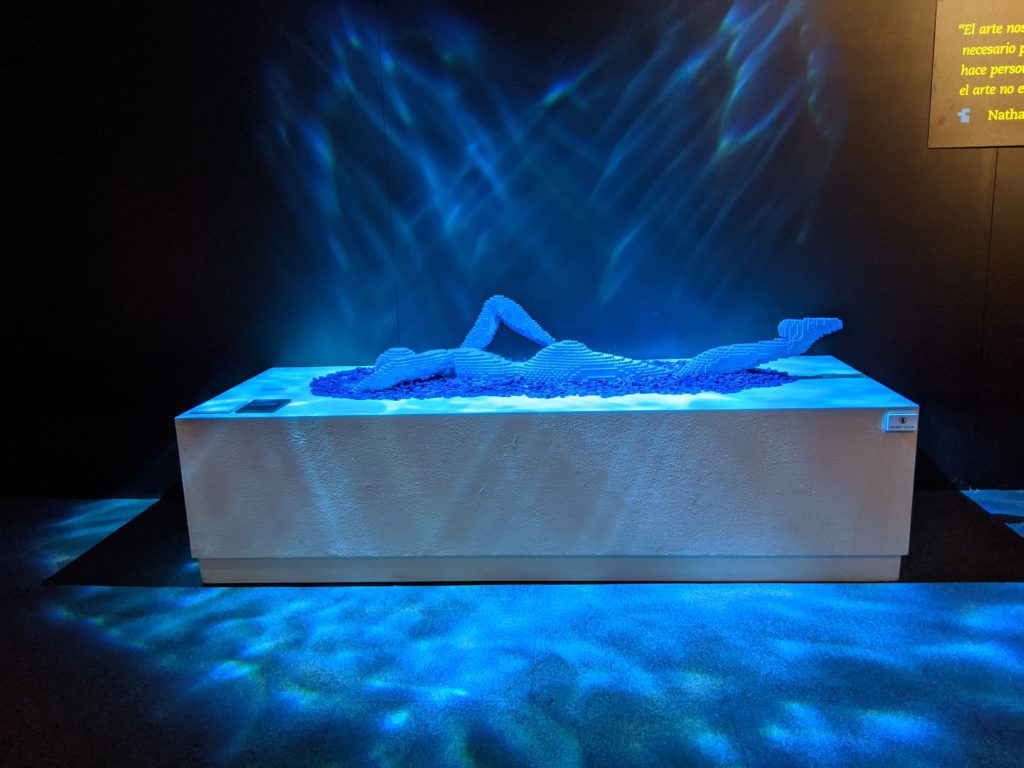
Nathan Sawaya
Nathan Sawaya is a contemporary American artist from Washington State and Oregon. He practiced law in Winston & Strawn in Los Angeles before his artworks gained national attention and resulted in him quitting his practice to work full-time as a LEGO artist. He even worked for the LEGO company briefly. Though he is no longer an employee of the toy company, the LEGO group has officially recognized him as a certified LEGO Professional and one of the best LEGO builders in the world.
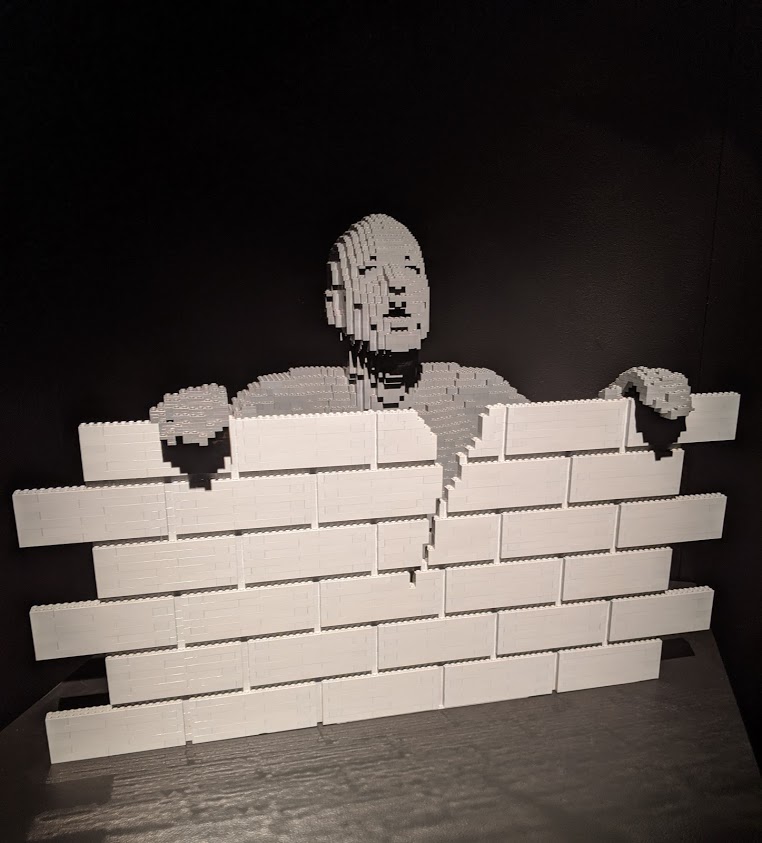
It Is believed that he owns about 3 million LEGO bricks, more than any other single individual in the world. He works out of his artist studios in Los Angeles and Manhattan.
LEGO Art
The LEGO art exhibit elevates a common toy that many children have played with, into whimsical and inspiring works of contemporary art. Nathan Sawaya’s exclusive use of LEGO bricks has been widely acclaimed and has captivated the inner child of anyone that has seen his works. It has been featured in many famous venues including the ArtScience Museum in Singapore, the Discovery Times Square in New York and most recently at the California Science Center in Los Angeles.
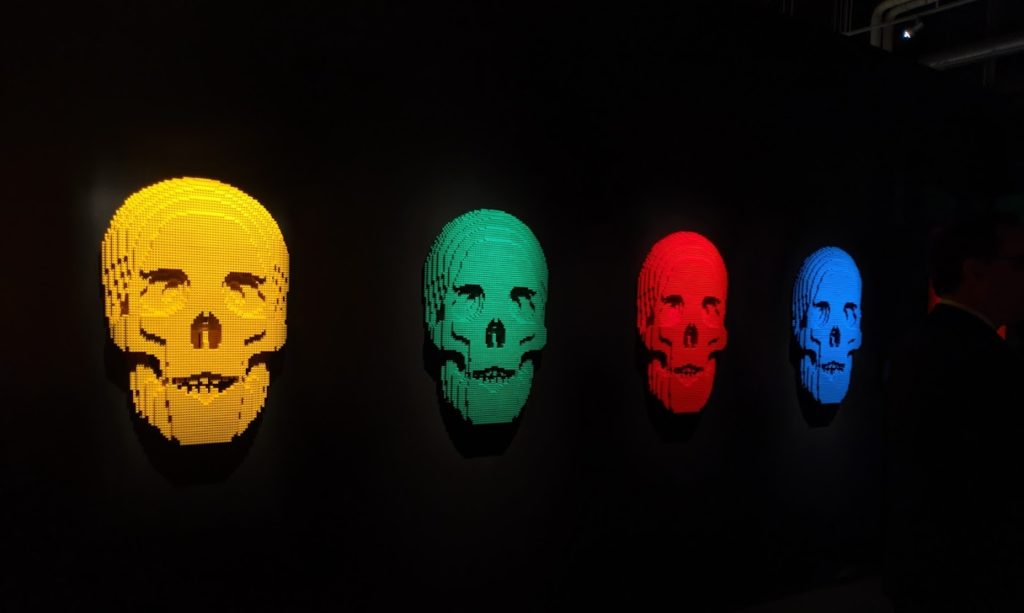
The exhibition features a combination of Sawaya’s original works, mixed media works of LEGO compositions in photographs, and Sawaya’s recreation of famous historical artworks! Though this exhibition warrants a visit in person, the following are some of his incredible recreations of famous artworks.
1. Rembrandt’s Self Portrait
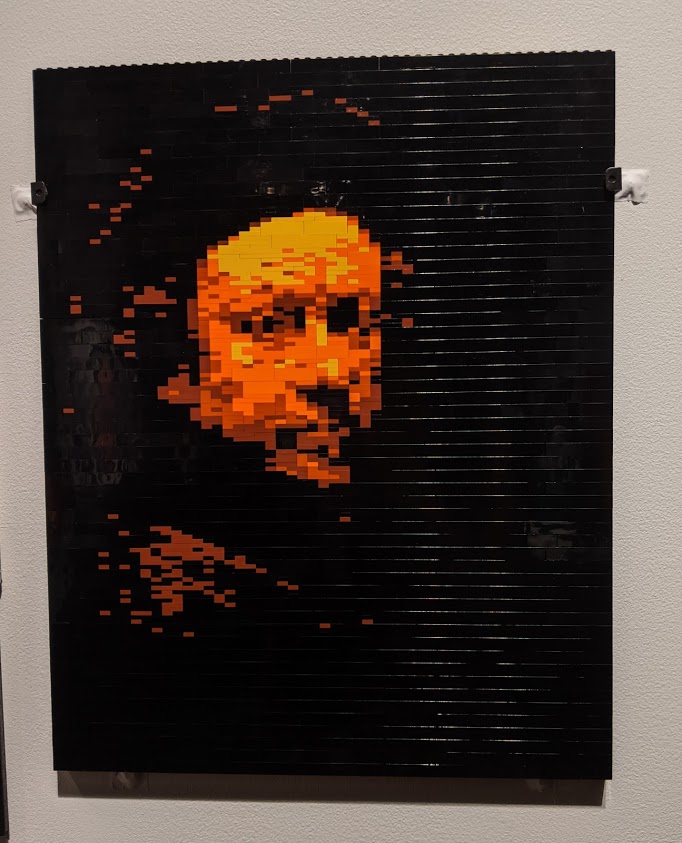
Self-portraits were an important part of Rembrandt’s oeuvre, popularly believed to highlight his introspective journey (as well as satisfy a growing market for self-portraits of prominent artists). Sawaya’s LEGO rendition recreates the original painting by the masterful use of colors. (Notice how the brown bricks subtly emphasize the outline of his hat!)
2. Amedeo Modigliani, Tête
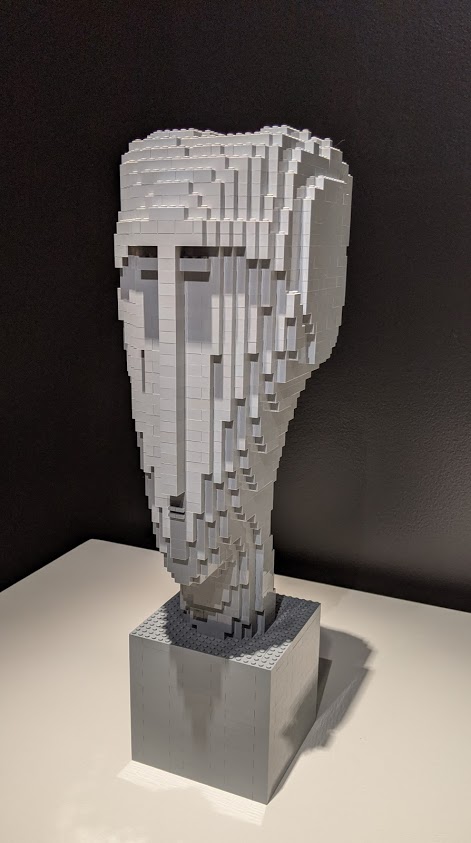
Tete is one of 27 known sculptures rendered by Modigliani between 1910 and 1912 and one of the most expensive works of art ever sold! It depicts the elongated head of a woman in a ceremonial mask, possibly of African origin. In Sawaya’s version, he widened the nose and protruded the eyebrows slightly more than the original to emphasize the features of the original.
3. Katsushika Hokusai, The Great Wave Off Kanagawa
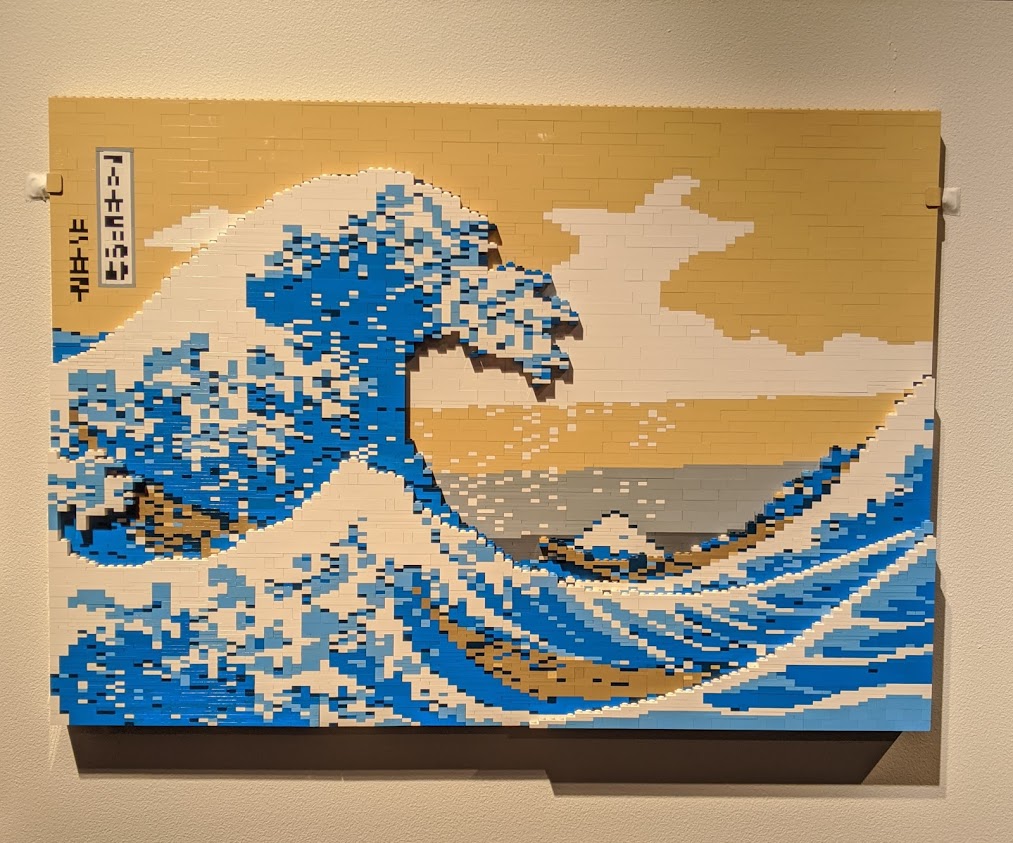
The Great Wave is a significant work from the late Edo period and possibly the most recognizable work of Japanese art. This series by Hokusai is characterized by the dramatic use of Prussian blue. It Great Wave depicts an enormous rogue wage threatening three fishing boats as Mount Fuji rises in the background. Though the boats are less apparent in the Sawaya’s brick version, the waves are depicted in great depth by the masterful use of different layers of bricks.
4. Jan van Eyck, The Arnolfini Portrait
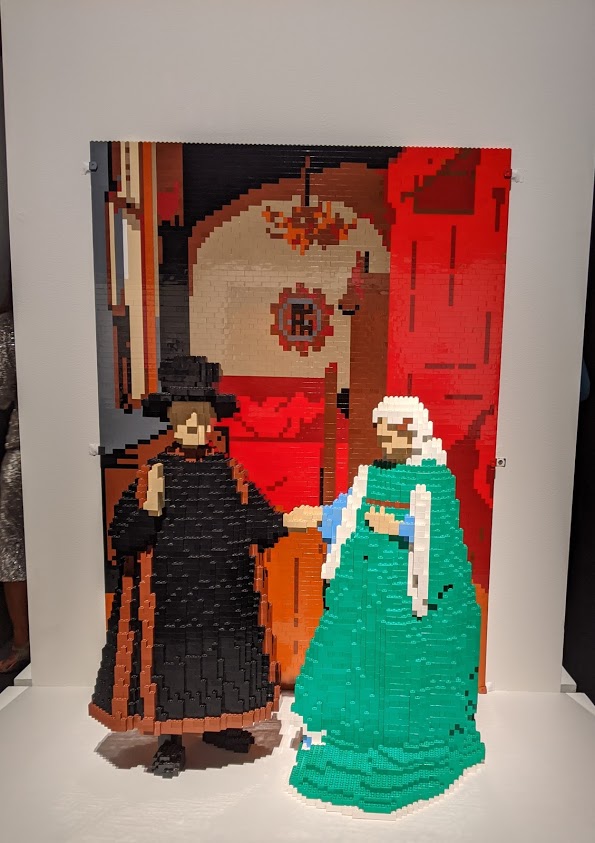
This LEGO rendition of the Arnolfini portrait renders the affluent Italian couple, Giovanni Arnolfini and his wife as three-dimensional sculptures, giving the viewer an opportunity to observe what Jan van Eyck witnessed while he created this masterpiece in 1434. Sawaya formulated parts of the two-dimensional background from his imagination by extending the background behind the two subjects.
5. Edvard Munch, The Scream
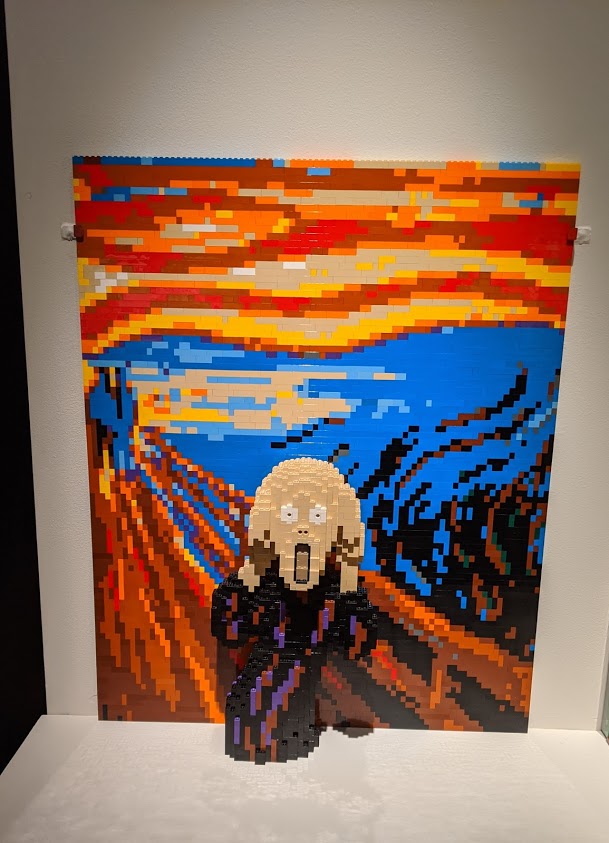
Munch became known as one of the first Expressionist painters. He was inspired to paint The Scream during an evening walk in the city of Oslo and used vivid colors to represent what he described as an existential scream of nature. The raw emotion depicted in The Scream has resonated with viewers all over the world. Sawaya used bright colors to recreate the sunset and emphasized the curve of the figure to pay tribute to the defining features of the famous painting.
6. The Great Sphinx of Giza & Nefertiti
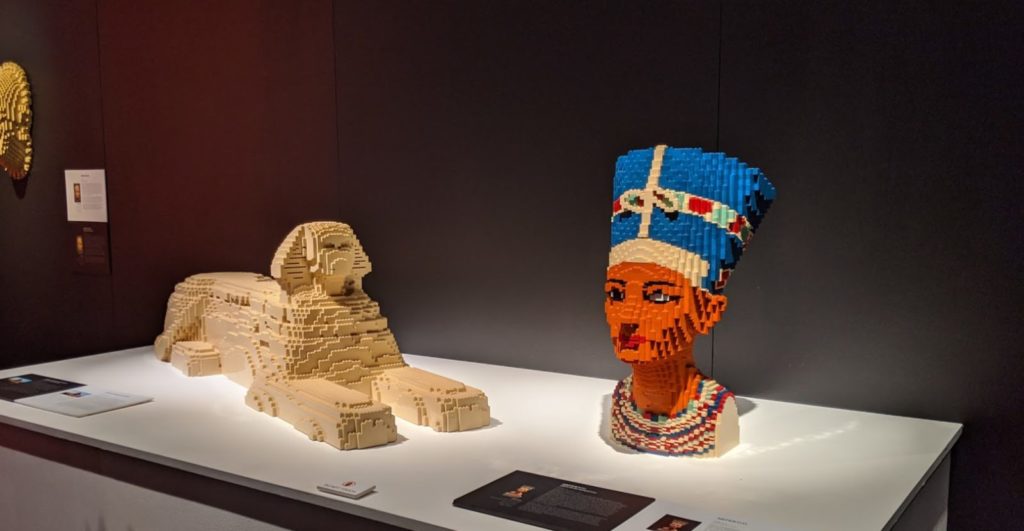
Standing majestically on the west bank of the Nile in the Giza Plateau, the Great Sphinx of Giza has confounded historians and Egyptologists for centuries. While there have been many speculations over the age and purpose of the structure, and there is no universal consensus on the identity of the builder or the dating of the Great Sphinx. Similarly shrouded in mystery is the Egyptian Queen Nefertiti. The bust of Nefertiti housed in Berlin’s Neues Museum is one of Ancient Egypt’s most famous and recognizable works of art. Sawaya has painstakingly and accurately rendered both these beloved mysterious Egyptian icons in LEGO. Though the Sphinx is not the same size as the original, it is built to scale!
7. Paul Cezanne, Still Life, Jug & Fruit
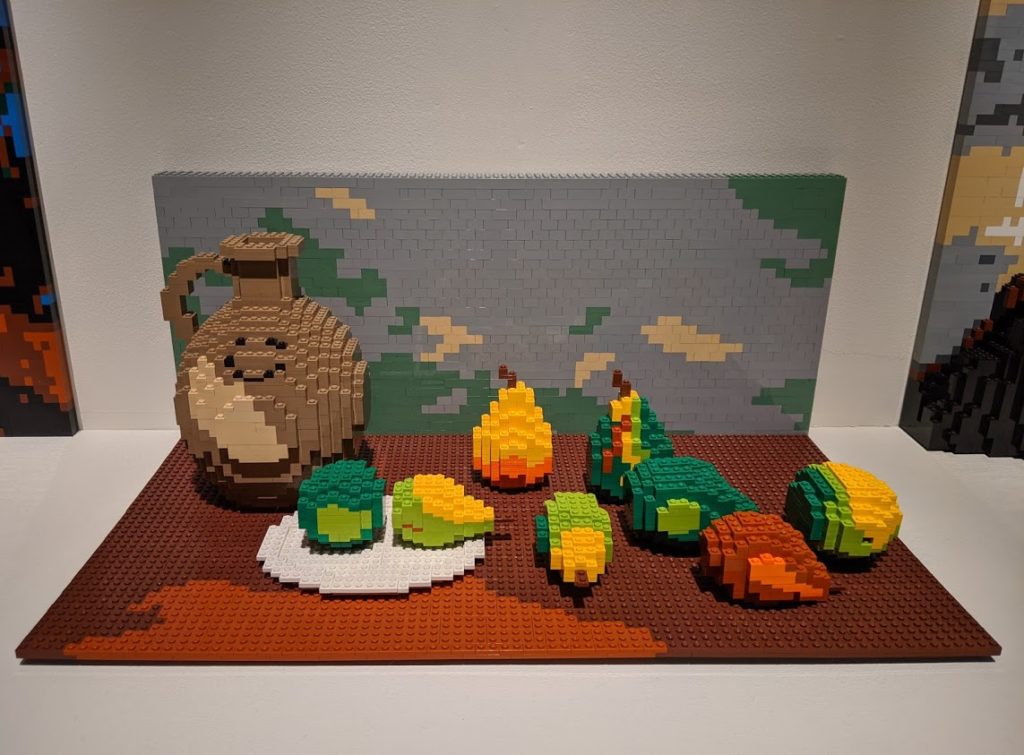
As he journeyed out of Impressionism, Cezanne created a series of still life where he experimented with composition and perspective. His works experimented with colors by creating stark contrasts, such as in this painting with the rich color of the fruits and the dull jug and table. Sawaya recreated Cezanne’s famous still life in the form of this three-dimensional artwork to shed light on what Cezanne must have looked at to create his original!
8. Little Dancer of Fourteen Years
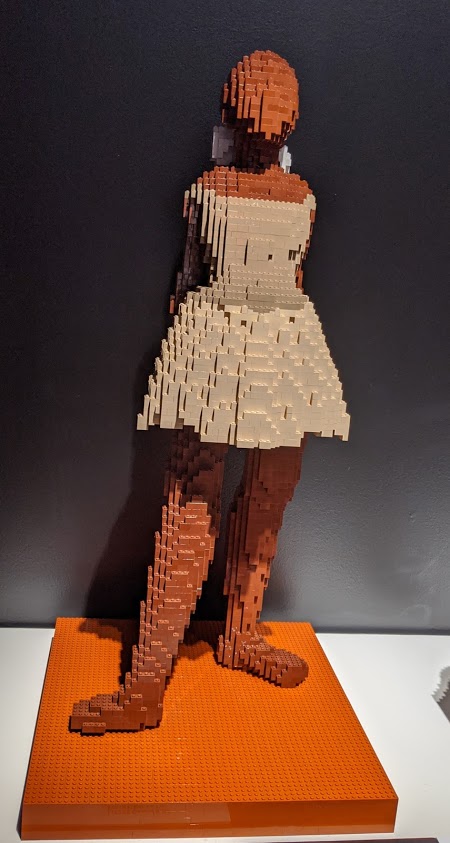
Edgar Degas presented the Little Dancer of Fourteen Years in at the sixth Impressionist exhibition in 1881. This beloved work of art would be the only sculpture that he would ever exhibit in public. While it received a cold reception when it was first presented, many bronze casts were produced after Degas’s death. Sawaya captures the upturned face and the self-assuredness of the original sculpture in brick. The fabric in the brick replica too closely resembles the original!
9. Claude Monet, San Giorgio Maggiore at Dusk
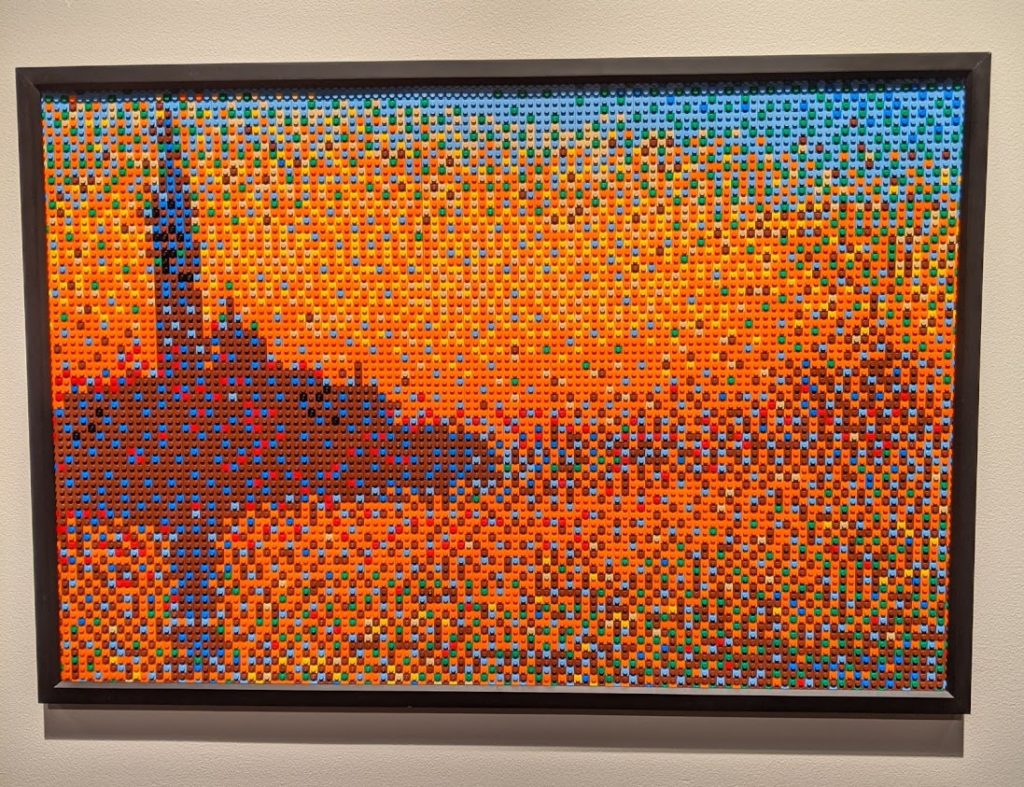
This painting forms part of a series of views of the bell tower and the cathedral on the island of San Giorgio Maggiore. Claude Monet produced repeated studies of the same motif, where he worked on the site and changed canvases throughout the day as the light, or even his interest, shifted (think of the haystacks!). In Sawaya’s rendition, the splendor of sunset is painstakingly captured by the skillful use of brightly colored LEGO pieces.
10. The Girl with the Pearl Earring
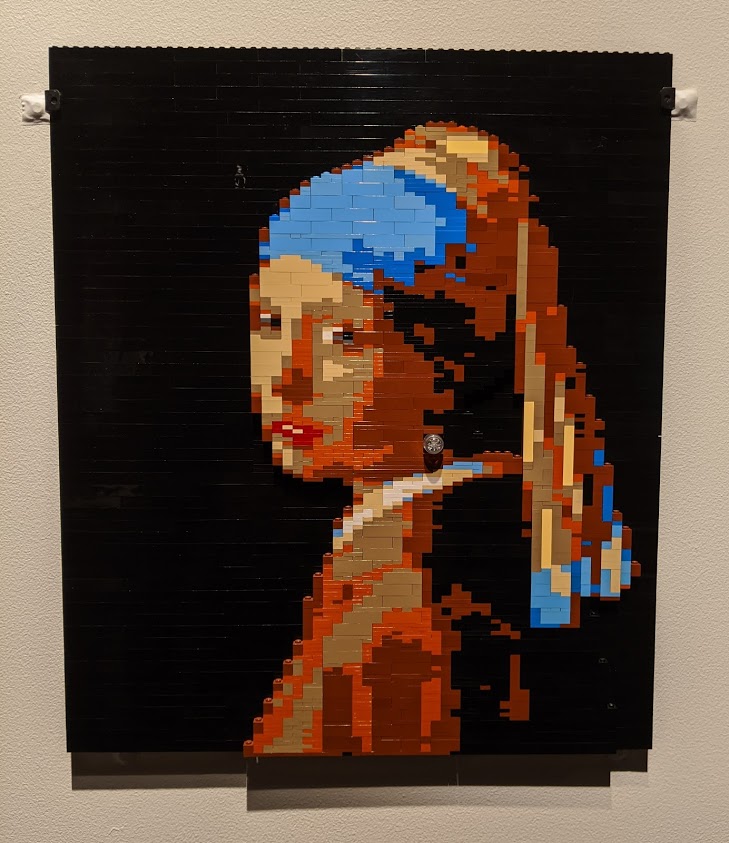
Known by many names over the years, the Girl with the Pearl Earring is Johannes Vermeer’s most iconic work! Her captivating gaze is reminiscent of the Mona Lisa, and the painting has sometimes been referred to as the Mona Lisa of the North. The age and identity of the subject have been heavily debated over the years. Sawaya’s used unconventional colors to create his replica and used an extra layer of brick to better define the features of Vermeer’s mysterious sitter. The focal point of the painting, the famous pearl earring has been represented by an actual round LEGO piece!
11. Grant Wood, American Gothic
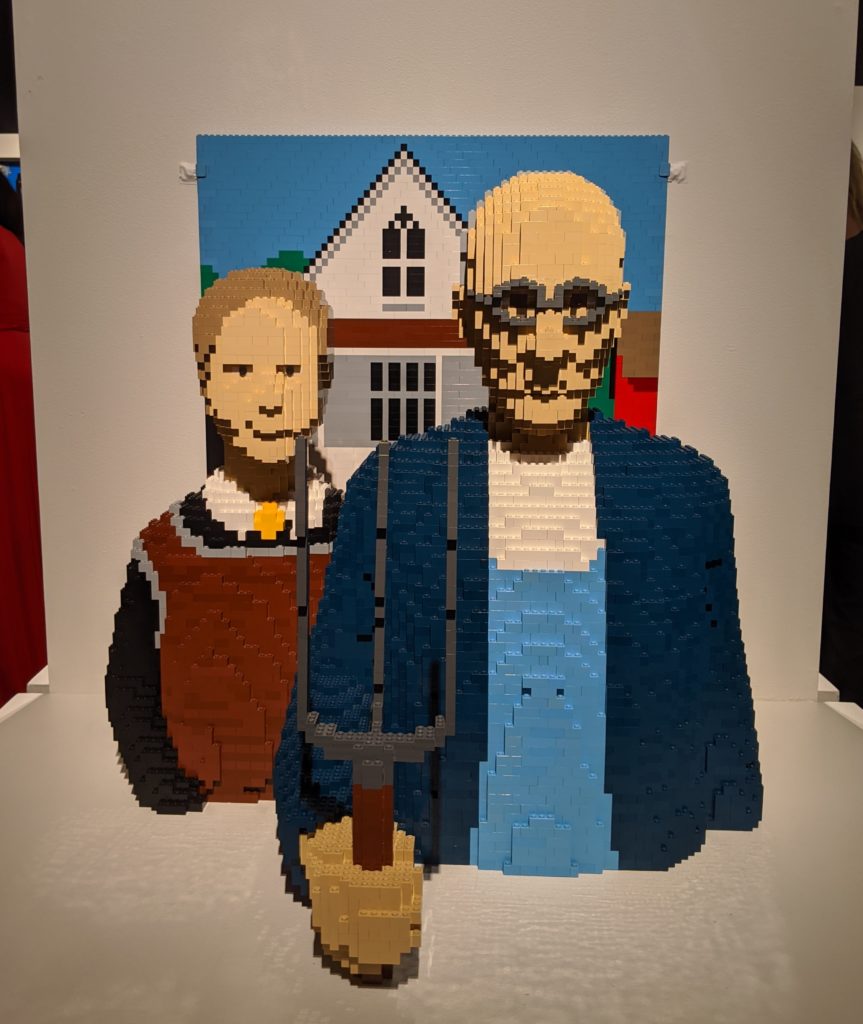
On display at the Art Institute in Chicago, the American Gothic is one of the most familiar images of American art and has been widely parodied in American popular culture. Sawaya’s LEGO creation re-imagines the two subjects as three-dimensional sculptures with a two-dimensional image to create the background.
12. Chacmool Figure
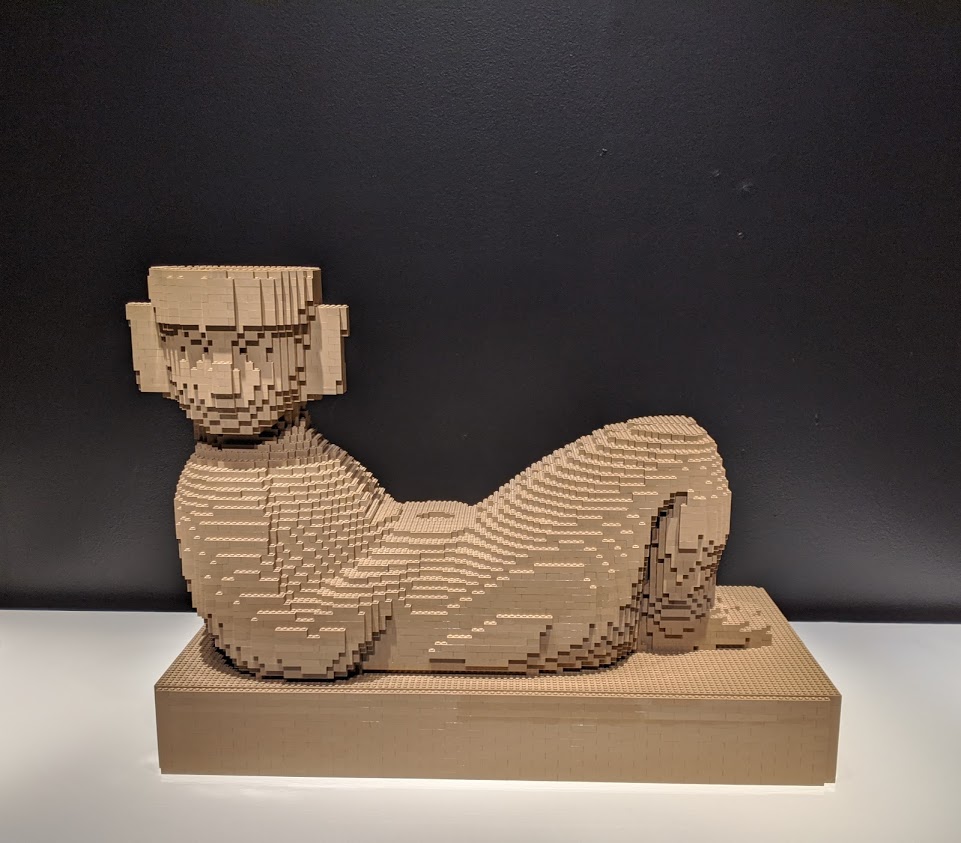
The chacmool is a form of Mesoamerican sculpture that represents a reclining figure with its head facing 90 degrees from the front, leaning on its elbows and supporting a bowl or a disk upon its chest. Many forms of the chacmool were found at various temple sites all over Central America, though they are believed to be religious paraphernalia rather than objects of worship (maybe they used during the human sacrifice rituals!). Sawaya recreated a Mayan chacmool from the Chichen Itza from photographs, as he was unable to visit one in person.
Exhibition Information
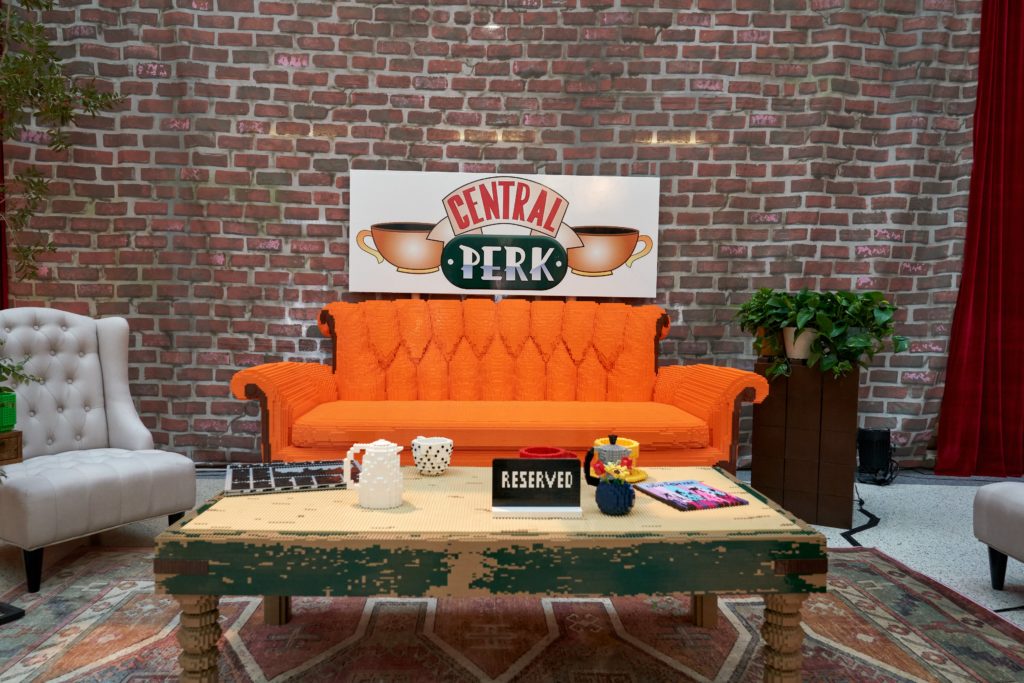
Photographer: Leroy Hamilton/ California Science Center.
California Science Center
The California Science Center is an impressive facility spanning over 400,000 sq. feet. Among its various impressive permanent collections is the Space Shuttle Endeavour. Located in the Samuel Oschin Pavilion, the Endeavour exhibit highlights the space shuttle program’s strong connection to the great state of California, where all the orbiters were built – definitely worth a visit!
Address: 700 Exposition Park Dr, Los Angeles, CA 90037
Exhibition Hours: Daily from 10:00 am to 5:00 pm (Last entry time is 3:30 pm)
General Entry Fee for Adults (Exhibit only): $19.75
TEMPORARY CLOSURE – In response to the COVID-19 pandemic precautions, the California Science Center is closed until further notice. Please check the website for up-to-date information.
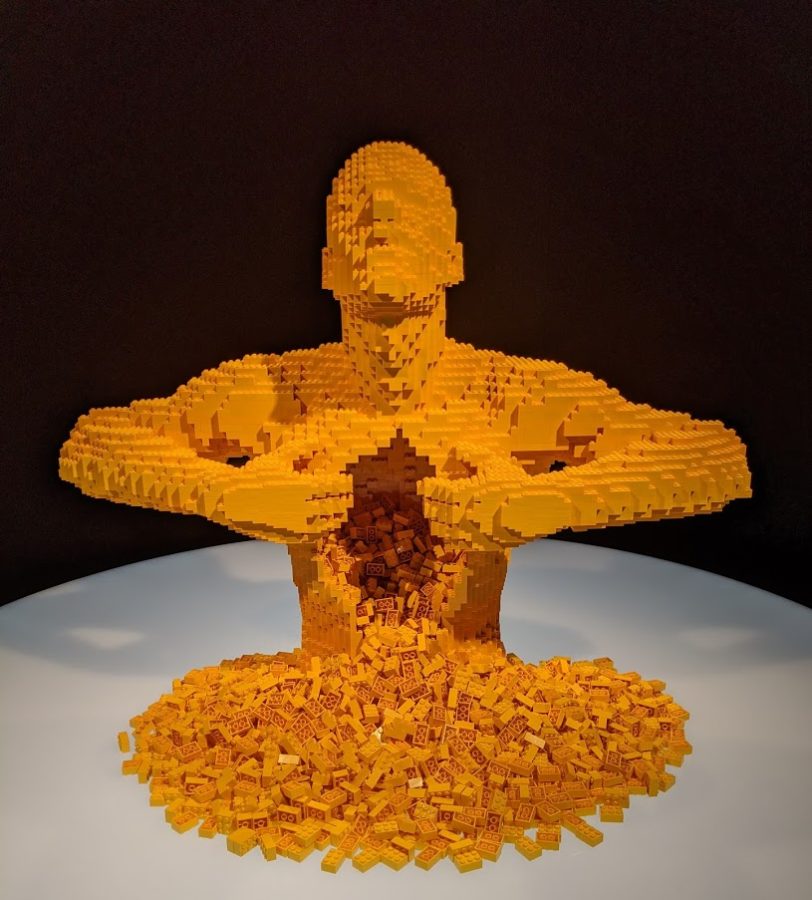
Sources
- The Art of the Brick
- California Science Center Tickets
Here’s more about Nathan Sawaya and his LEGO masterpieces:
